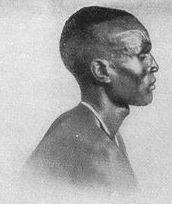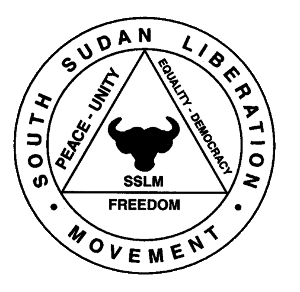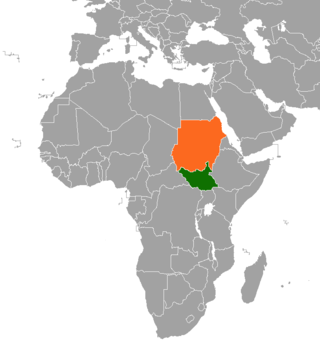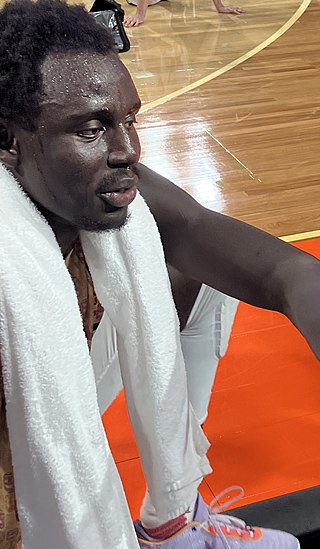Related Research Articles

Jonglei State is a state of South Sudan with Bor as its centre of government and the biggest city. Jonglei state comprises nine counties: Bor, Akobo, Ayod, Uror, Duk, Nyirol, Pigi, Twic East, and Fangak. Jonglei State is the largest state by area before reorganisation, with an area of approximately 122,581 km2, as well as the most populous according to the 2008 census conducted in present-day South Sudan's second period of autonomy. The boundaries of the state were again changed as a result of a peace agreement signed on 22 February 2020.

The Dinka tribe are a Nilotic ethnic group native to South Sudan with a sizable diaspora population abroad. The Dinka mostly live along the Nile, from Bor to Renk, in the region of Bahr el Ghazal, Upper Nile, and the Abyei Area of the Ngok Dinka in South Sudan.

The Nuer people are a Nilotic ethnic group concentrated in the Greater Upper Nile region of South Sudan. They also live in the Ethiopian region of Gambella. The Nuer speak the Nuer language, which belongs to the Nilotic language family. They are the second largest ethnic group in South Sudan. The Nuer people are pastoralists who herd cattle for a living. Their cattle serve as companions and define their lifestyle. The Nuer call themselves "Naath".

Kakuma is a town in northwestern Turkana County, Kenya. It is the site of a UNHCR refugee camp, established in 1992. The population of Kakuma town was 60,000 in 2014, having grown from around 8,000 in 1990. In 1991, the camp was established to host unaccompanied minors who had fled the war in Sudan and from camps in Ethiopia. It was estimated that there were 12,000 "lost boys and girls" who had fled here via Egypt in 1990/91.

The South Sudan Liberation Movement (SSLM) is an armed group that operates in the Upper Nile Region of South Sudan. The group's creation was announced in November 1999 by people of the Nuer ethnicity who were in both the rebel Sudan People's Liberation Army (SPLA) and the government-allied South Sudan Defence Forces (SSDF) gathered in Waat. The SSLM was declared to be unaligned in the Second Sudanese Civil War, then entering its sixteenth year. The name "South Sudan Liberation Movement" was decided upon the next year, borrowing from the earlier Southern Sudan Liberation Movement, which existed in the 1980s.

The Lost Boys of Sudan refers to a group of over 20,000 boys of the Nuer and Dinka ethnic groups who were displaced or orphaned during the Second Sudanese Civil War (1987–2005). Two million were killed and others were severely affected by the conflict. The term was used by healthcare workers in the refugee camps and may have been derived from the children's story of Peter Pan by J. M. Barrie. The term was also extended to refer to children who fled the post-independence violence in South Sudan in 2011–2013.
John Dau, also known as Dhieu-Deng Leek is a human rights activist from South Sudan. He is one of the Lost Boys of Sudan who was featured in the 2006 award-winning documentary God Grew Tired of Us. In 2007, he founded the John Dau Foundation aiming to transform the health system in South Sudan.

Sudanese nomadic conflicts are non-state conflicts between rival nomadic tribes taking place in the territory of Sudan and, since 2011, South Sudan. Conflict between nomadic tribes in Sudan is common, with fights breaking out over scarce resources, including grazing land, cattle and drinking water. Some of the tribes involved in these clashes have been the Messiria, Maalia, Rizeigat and Bani Hussein Arabic tribes inhabiting Darfur and West Kordofan, and the Dinka, Nuer and Murle African ethnic groups inhabiting South Sudan. Conflicts have been fueled by other major wars taking place in the same regions, in particular the Second Sudanese Civil War, the War in Darfur and the Sudanese conflict in South Kordofan and Blue Nile.
Ethnic violence in South Sudan has a long history among South Sudan's varied ethnic groups. South Sudan has 64 tribes with the largest being the Dinkas, who constitute about 35% of the population and predominate in government. The second largest are the Nuers. Conflict is often aggravated among nomadic groups over the issue of cattle and grazing land and is part of the wider Sudanese nomadic conflicts.

A Long Walk to Water is a short novel written by Linda Sue Park and published in 2010. It blends the true story of Salva Dut whose story is based in 1985, a part of the Dinka tribe and a Sudanese Lost Boy, and the fictional story of Nya whose story is based in 2008, a young village girl that was a part of the Nuer tribe. Park used this book as a platform to support Dut's organization, Water for South Sudan.
South Sudanese Americans are an ethnic group of Americans of South Sudanese ancestry, or South Sudanese people who have American citizenship. South Sudanese Americans can include American descendants to South Sudanese ancestors or South Sudanese immigrants who obtained an American citizenship.
South Sudanese refugees are persons originating from the African country of South Sudan, but seeking refuge outside the borders of their native country. The world's youngest independent country has a recent and troubled history of prolonged conflicts and ecosystem mismanagement such as overlogging, which has led to desertification. These forces have resulted not only in violence and famine, but also the forced migration of large numbers of the population, both inside and outside the country's borders. South Sudan was cited as the largest refugee crisis in 2016, being the world's third largest, followed by Syria and Afghanistan. As of 2022, the UNHCR estimated that there were 2.4 million refugees under its mandate originating from South Sudan, making the country the fifth largest source of refugees.
Nyumanzi Refugee Settlement is a refugee camp in Adjumani District in northwestern Uganda. Established in 2014, it hosts about 52,000 South Sudanese refugees.
The 2014 retreat from Western Bahr el Ghazal, also called the long march north, was an unorganized withdrawal by hundreds of Nuer Sudan People's Liberation Army (SPLA) deserters who sought to flee from Bahr el Ghazal to Sudan during the South Sudanese Civil War. After longstanding tensions between SPLA soldiers belonging to the Dinka and Nuer ethnic groups escalated on 25 April 2014, leading to a massacre of Nuer soldiers at Mapel in Western Bahr el Ghazal, a large number of Nuer SPLA soldiers deserted to escape ethnic prosecution and loyalist SPLA forces. Though some deserters joined SPLM-IO rebels or surrendered to the government, a large number of them marched northward, joined by other SPLA defectors from Northern Bahr el Ghazal. After covering over 400 kilometres (250 mi), this trek eventually arrived in Sudan on 4 August 2014, where they were disarmed.
Nyadol Nyuon, is an Australian lawyer and human rights advocate, who was born in a refugee camp in Ethiopia, of a family fleeing the Second Sudanese Civil War. She works as a commercial litigator in Melbourne and is a regular media commentator.
Kuol D. Kuol is a former South Sudan People's Defence Forces (SPLA) general and the chief administrator of the Abyei Area since June 29, 2020.

Daniel Danis is a South Sudanese film director and radio host.
Mercy Akuot Marang is a South Sudanese social activist and singer. She currently lives in Kenya.

Bul Kuol is a South Sudanese-Australian professional basketball player for the Cairns Taipans of the National Basketball League (NBL). Born in Sudan, he moved to Australia when he was nine years old and went to school in Canberra. He played two years in the SEABL for the Canberra Gunners before playing college basketball in the United States for five years, four at California Baptist and one at Detroit Mercy. In 2021, he played for the Knox Raiders in the NBL1 South before joining the Taipans. In 2023, he had a stint with Le Mans of the French Pro A.
Dinka and Nuer are the two largest ethnic groups in South Sudan. Conflict over pastures and cattle raids has been happening between these two ethnic groups as they battle for grazing their animals. Nevertheless, in 2013, the former Vice president Riek Machar who is a Nuer, was dismissed by the president of South Sudan, Salva Kiir, who is a Dinka, which created conflict between the Dinka and Nuer people in South Sudan.
References
- 1 2 3 4 5 "I was the 'mysterious' child who defied the odds to survive amid poverty, displacement and war". ABC News. 2022-04-30. Retrieved 2022-07-31.
- 1 2 3 4 Dow, Steve (2022-05-08). "Akuch Kuol Anyieth: 'When you grow up in mayhem, you have no choice but to be strong'". the Guardian. Retrieved 2022-07-31.
- ↑ "Bio, Akuch Kuol Anyieth". scholars.latrobe.edu.au. Retrieved 2022-07-31.
- ↑ Carroll, Cameron Woodhead and Steven (2022-05-26). "A forbidden affair makes for intense reading in this knockout novel". The Sydney Morning Herald. Retrieved 2022-07-31.
- ↑ Dow, Steve (2022-05-01). "'Exquisite', 'extraordinary', 'insightful': the best Australian books out in May". the Guardian. Retrieved 2022-07-31.
- ↑ Victorian Refugee Award Recipients, 2022 https://www.multiculturalcommission.vic.gov.au/victorian-refugee-awards-recipients
- ↑ "National Biography Award". State Library of NSW. 2020-05-21. Retrieved 2023-07-13.